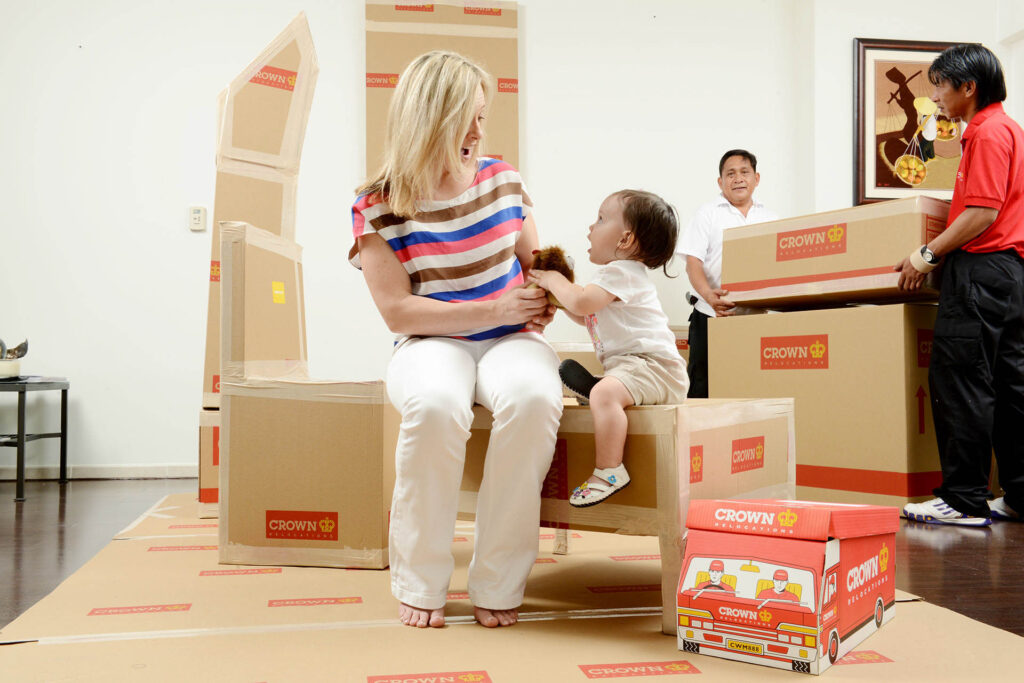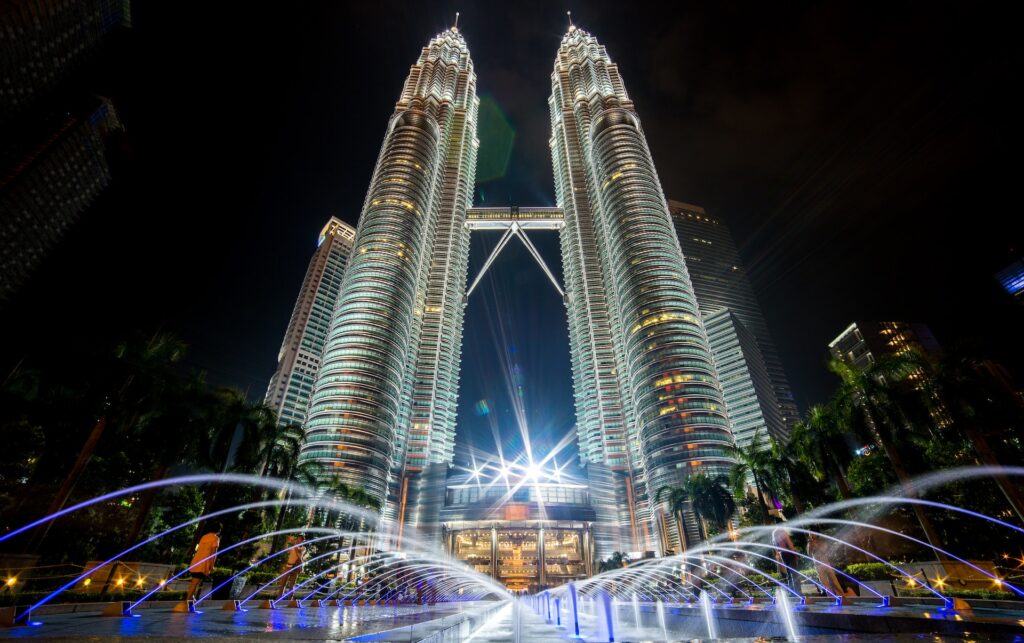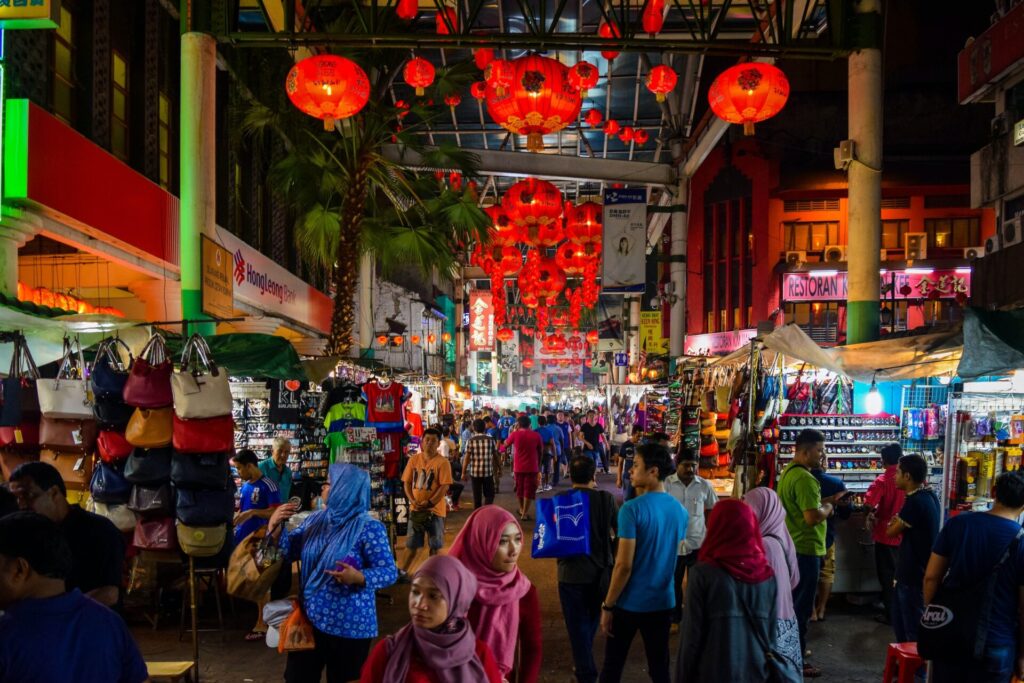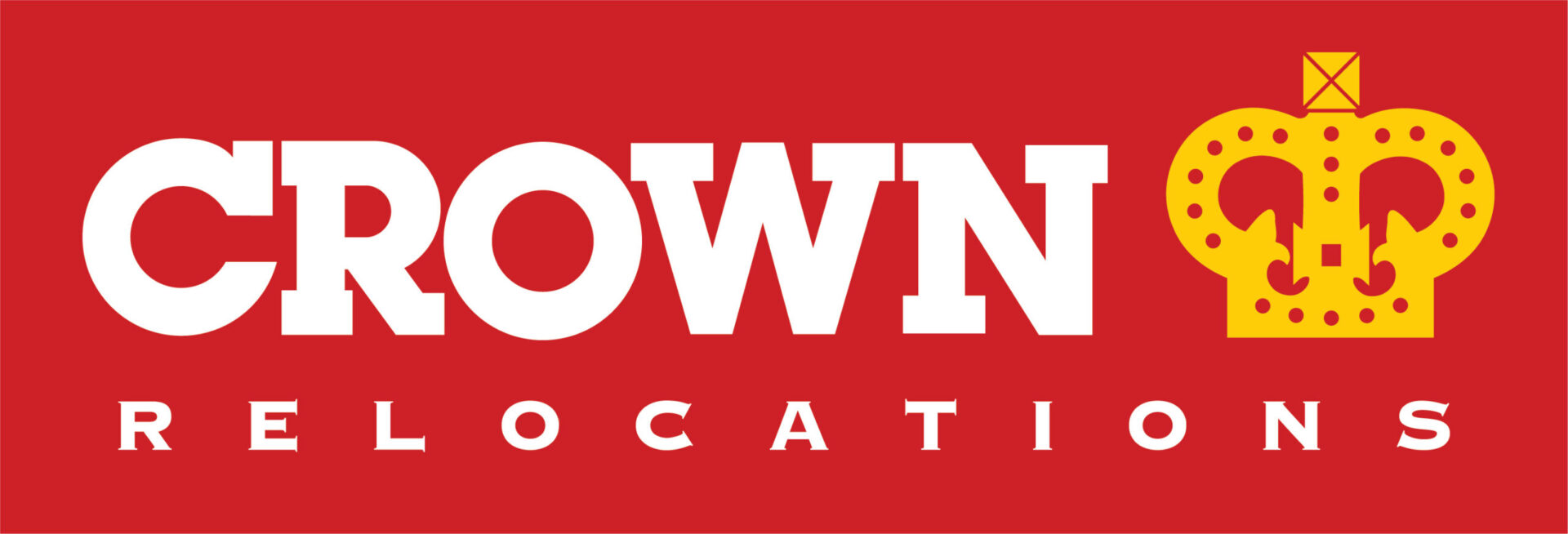Malaysia
Destination country guides
The complete guide to moving to Malaysia
Moving to Malaysia is an exciting adventure that opens the door to a world of diverse cultures, stunning landscapes, and thriving urban centres. Nestled in Southeast Asia, Malaysia is known for its unique blend of traditions, vibrant cities, lush rainforests, and pristine beaches. Whether you’re drawn to the bustling metropolis of Kuala Lumpur, the cultural richness of Penang, or the natural beauty of Borneo, Malaysia offers a welcoming and dynamic environment for expatriates.
As experts in international moving services, Crown Relocations has compiled an extensive guide with important things to know before moving to Malaysia. Whether you’re relocating for work, education, retirement, or adventure, Malaysia promises a rich and fulfilling experience.
Home
Buying a House in Malaysia
If you’re thinking about relocating to Malaysia and purchasing a home, here are some key factors to be aware of:
Financial eligibility: Having a good credit history and a stable income source is crucial when securing a mortgage in Malaysia, as your credit score plays a significant role in the mortgage application process. Lenders often assess your financial stability to determine loan eligibility.
Evaluate costs: When exploring the option of purchasing a property in Malaysia, it is crucial to take into account all the related expenses. These costs can vary depending on the property type and location, and may include property taxes, legal fees, stamp duty, valuation fees, and real estate agent commissions.
Property types and locations: Malaysia offers various property types, such as flats, houses, and apartments. Consider the location carefully, as Malaysia’s diverse regions offer different lifestyles, ranging from the bustling city of Kuala Lumpur to the peaceful charm of coastal towns.
Legal procedures and timeframes: The property purchase process in Malaysia involves legal procedures, title searches, and compliance with regulations. Negotiations with sellers can also extend the timeline. While the process is generally structured, be prepared for the possibility that it may take several weeks or months to finalise the deal.
Foreign ownership regulations: If you’re a non-Malaysian citizen, familiarise yourself with the foreign ownership regulations in Malaysia. Restrictions may apply to certain property types or locations.
To ensure a successful property purchase in Malaysia, it’s highly advisable to seek guidance from qualified real estate experts and financial advisors. They can provide valuable advice, assist with legal needs, and make the property process smoother and more informed. Their expertise is crucial in handling the complexities of the Malaysian real estate market.
Setting up home
When it comes to settling into your new life, you’ll have several options to consider, whether you’re planning to rent an apartment or buy a house. Here are the key steps to help you find your ideal home as you make the move to Malaysia:
Determine Your Budget and Preferences: Before you begin your housing search, assess your budget, housing preferences, and the desired location within Malaysia. Consider factors such as the type of property, size, and amenities that align with your lifestyle.
Do some research: Once you have a clear idea of your housing criteria, you can start searching for the perfect home in Malaysia. There are various online platforms that can assist you in your search:
- PropertyGuru Malaysia: PropertyGuru is a popular platform with an extensive database of properties available for rent and sale across Malaysia. It provides comprehensive resources and information on the Malaysian real estate market, allowing you to filter properties by price, location, and other preferences.
- iProperty Malaysia: iProperty is another valuable online platform that offers a wide range of property listings for both rental and purchase. It provides a user-friendly search function to help you find properties that match your specific criteria.
- Mudah.my: Mudah.my is a popular classifieds website in Malaysia where you can find a variety of listings, including properties for rent and sale. It’s a useful platform for exploring different housing options.
- Speedhome or HostelHunting: If you’re interested in shared living spaces or accommodations with roommates in Malaysia, platforms like Speedhome and HostelHunting can help you find suitable co-living arrangements. These options can be cost-effective and offer a sense of community.
By utilising these online resources and platforms, you can search for your new home in Malaysia while ensuring that your housing choices align with your preferences and budget.

Transporting your belongings
Crown Relocations is your trusted partner in ensuring a smooth transition when it comes to transporting your household belongings to Malaysia. We understand that this process may seem overwhelming, but with our expertise and experience, we are here to support you every step of the way.
Whether you’re moving to Malaysia from Australia or any other country, our team of experienced removalists is dedicated to guiding you through the entire process. We offer both sea freight and air freight options tailored to your volume and urgency requirements. Our competitive sea freight rates provide cost-effective solutions, while our door-to-door air freight service ensures essential items arrive quickly.
Utilities
In Malaysia, utilities play a vital role in everyday life, particularly when relocating to cities and suburbs. These essential services are renowned for their reliability and accessibility, making the transition smoother for our customers. Malaysia has a strong infrastructure for essential services like electricity, water, and gas. Tenaga Nasional Berhad (TNB) is the main electricity provider in Peninsular Malaysia, while Sabah Electricity and Sarawak Energy efficiently supply electricity to Sabah and Sarawak regions.
Clean water is well-managed by state water authorities and local agencies in Malaysia. In most urban areas, high-speed internet is widely available, improving connectivity. Malaysia also has efficient waste collection and sewage systems, making daily life comfortable for residents and expatriates. These utilities make Malaysia an appealing destination for living.
Finances
Relocating to Malaysia can be a challenging task, but effective financial management is key to ensuring a smooth transition for you and your family. Here are some essential steps to consider:
Open a Bank Account: Before your move, research and select a bank in Malaysia where you can open an account. Having a local bank account will simplify financial transactions and management upon your arrival. Make sure you have all the necessary documents, including identification and proof of address, to complete the account opening process.
Understand Local Banking Regulations: Familiarise yourself with the banking regulations and requirements in Malaysia. Different banks offer various types of accounts and fees, so choose one that aligns with your financial needs.
Set a Budget: Moving to Malaysia can involve significant expenses, including accommodation, transportation, utilities, education, groceries, healthcare, and recreational activities. Create a budget that includes both one-time expenses like visa fees and initial deposits, as well as ongoing monthly expenditures. A well-planned budget will help you manage your finances effectively.
Monitor Exchange Rates: If you need to transfer funds from your home country to Malaysia, keep a close eye on currency exchange rates. Exchange rates can fluctuate, so it’s important to stay informed and choose the right time to convert your funds. Utilise online currency converters or seek advice from financial experts to navigate this aspect effectively. You can also visit our Foreign Currency Transfer.
Investigate Taxation and Financial Regulations: Familiarise yourself with Malaysia’s tax system and financial regulations. Understanding tax obligations and financial rules will help you avoid any unexpected issues in the future. If needed, consult with local experts or authorities for guidance on tax matters.
By following these steps and proactively managing your finances, your transition to Malaysia will be more comfortable and financially secure, ensuring a positive start to your new chapter in this vibrant country.

Lifestyle
Getting around
Getting around Malaysia is simple thanks to its diverse transportation options. In bustling cities like Kuala Lumpur and Penang, you’ll find efficient public transport systems, readily available taxis, and convenient ride-sharing services that make urban travel a breeze. For a dose of tradition and charm, trishaws are a delightful option in heritage-rich areas. If you prefer independence, rental cars are easily accessible, and Malaysia’s well-maintained road network ensures smooth driving, although traffic can be busy in major cities.
For longer journeys between cities, the country offers long-distance buses and scenic rail services like the Electric Train Service (ETS) and KTM Komuter. Ferries and speedboats provide access to Malaysia’s beautiful islands, and international airports, including Kuala Lumpur International Airport (KLIA), simplify travel to remote destinations and abroad. You can also explore cities and tourist spots at a leisurely pace through cycling paths and pedestrian walkways. Malaysia’s transportation network seamlessly complements its diverse landscapes, making travel throughout the country a comfortable and enjoyable experience.

Everyday life
Everyday life in Malaysia is a fascinating blend of diverse cultures, modern living, and tradition. Malaysians take pride in their multicultural society, where Malaysians, Chinese, Indians, and indigenous communities live together in harmony. This diverse mix of cultures is celebrated through festivals, art, and cuisine, making each day a delightful exploration of flavours and traditions. Food is at the heart of Malaysian life, with bustling street markets offering a mouthwatering array of dishes. The country’s linguistic diversity is another hallmark, with Bahasa Malaysia as the official language, yet English, Chinese dialects, and Tamil are commonly spoken.
Malaysia is a country that cherishes its natural wonders, offering a diverse range of experiences for outdoor adventurers. From vibrant cities to lush rainforests and pristine beaches, Malaysians take pride in their stunning landscapes that provide ample opportunities for exploration and adventure. The strong sense of community and hospitality ensures that newcomers quickly feel at home, as they immerse themselves in Malaysia’s vibrant everyday life.
Transport
Can I drive in Malaysia?
Driving in Malaysia is subject to several factors, including your nationality and the type of driving license you possess. If you have a valid driver’s licence from another European Union (EU) or European Economic Area (EEA) country, you can generally drive in Malaysia with your existing licence. However, if your license is not in English, you may need an International Driving Permit (IDP) or an official translation of your license.
For those moving to Malaysia from Australia, the rules may differ. Typically, you can use your Australian driver’s licence for up to 12 months from your arrival date. After this period, you may need to obtain a Malaysian driver’s licence. The specific requirements and procedures can vary, so it’s advisable to check with the relevant authorities or your embassy/consulate for the most up-to-date information. Additionally, it’s essential to familiarise yourself with Malaysian road regulations, road signs, and driving conditions, as they may differ from what you’re accustomed to in your home country.
Education
School options in Malaysia
For families contemplating a move to Malaysia, there is a wide range of school options available. Public schools, which are overseen by the government, primarily teach in Bahasa Malaysia and cater to local students.
Private schools are also available, offering diverse curriculum for those looking for an alternative to public education. Expatriates often prefer international schools, which provide classes in English and follow global curriculums like the IB or British system. Malaysia also boasts a growing number of international colleges and universities, making it an appealing destination for higher education.
Legal System
Malaysia’s legal system is a unique combination of Islamic and civil law traditions. It operates with two parallel systems: civil law, which is mainly based on English common law and covers areas like contracts and property, and Sharia law, which deals with personal and family matters for Muslims, such as marriage and inheritance.
Malaysia has a hierarchical court system, with the Federal Court at the top, followed by the Court of Appeal and the High Court. This dual legal system reflects Malaysia’s diverse society, where different religions and cultures coexist. The country has also updated its legal framework to be more business-friendly and attract foreign investment.
Employment, Visas and Permits
Malaysia’s dynamic and expanding economy makes it an attractive destination for job seekers worldwide. The country presents a wide spectrum of employment opportunities across diverse industries, including technology, healthcare, finance, and more. When it comes to seeking employment opportunities in Malaysia, there are various avenues to explore. These include utilising job search websites, corporate portals, recruitment agencies, and networking platforms like LinkedIn. Seeking guidance from recruitment agencies is also beneficial, as they can align your skills and experience with suitable positions.
Malaysia’s work culture places importance on professionalism, collaboration, punctuality, effective communication, and a strong work ethic. The country has established a minimum wage to ensure a basic standard of living for employees.
Before moving to Malaysia, it’s crucial to understand the relevant visa and employment regulations. The specific visa and permits required depend on your nationality, the purpose of your stay, and the intended duration of your employment. To obtain detailed information about available visa types and the application process, visit Malaysia’s immigration authorities.
Malaysia has protective employment laws that regulate working conditions, including working hours and benefits. The standard workweek is often set at 40 hours spread across five days, although this can vary by industry and specific employment agreements. Malaysian employees are entitled to benefits like paid annual leave and public holiday pay. They also receive contributions to the Employee Provident Fund (EPF), a mandatory retirement savings scheme.
Salaries in Malaysia fluctuate based on factors such as job role, experience, and location. Certain sectors, like technology, finance, and healthcare, offer competitive compensation, particularly for managerial positions. However, it’s essential to be mindful of the cost of living, especially in major cities such as Kuala Lumpur. When budgeting, consider expenses like housing, transportation, and healthcare, as these costs can vary significantly depending on the specific region or city in Malaysia where you choose to work and reside.
Health
When considering a move to Malaysia, it’s important to familiarise yourself with the healthcare system. Malaysia offers a dual healthcare system including public and private services. Public healthcare, known for its affordability, includes government hospitals and clinics accessible to expatriates with long-term visas.
Private healthcare, available in major cities like Kuala Lumpur, offers advanced medical facilities and shorter waiting times but can be more expensive. It’s advisable to secure health insurance when moving to Malaysia to ensure comprehensive coverage, as healthcare costs can vary significantly.
Overall, Malaysia’s healthcare system caters to diverse needs, providing quality care for both residents and expatriates.
Moving to Malaysia with Crown Relocations
Relocating to Malaysia with Crown Relocations offers a seamless and efficient transition to this vibrant and diverse country. With our extensive experience in international moving, we guarantee a hassle-free experience, from packing and shipping your belongings to assisting with settling into your new home in Malaysia. Our commitment to customer satisfaction, combined with our expert guidance and in-depth knowledge, makes us the perfect choice for anyone considering a move to Malaysia. Whether it’s for work, retirement, or a new adventure, Crown Relocations’ services will ensure a smooth and successful transition to your new life in Malaysia.
Moving to Malaysia
Ready to get moving?
Get the quickest quote possible
We understand that waiting at home for a moving consultant may not be convenient, which is why we offer a simple video assessment using your smartphone.
You can choose between a guided live video consultation “Smart Consult” with one of our moving experts or a self-service video option. Either choice will provide us with everything we need to know to accurately assess and prepare your moving quotation.
Go knowing....
Contact
- 2-6 Lionel Road, Mount Waverley, VIC, 3149 Australia
- +(61) 3 8586 7600
-
Mon-Fri, 8:30am - 5:00pm
Business hours










